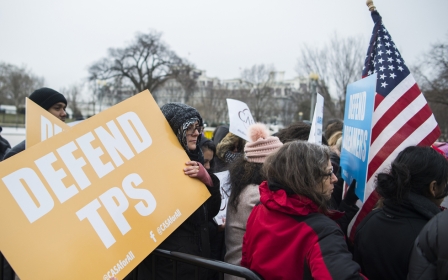US allows Syrians to stay, renews their 'protected status'
The Trump administration said on Wednesday it would allow about 7,000 Syrians to remain in the United States for at least another 18 months under protected status as civil war rages in their native country.
"After carefully considering conditions on the ground, I have determined that it is necessary to extend the Temporary Protected Status designation for Syria," said Department of Homeland Security Secretary Kirstjen Nielsen in a statement.
"It is clear that the conditions upon which Syria's designation was based continue to exist, therefore an extension is warranted under the statute."
TPS allows people in the United States on a temporary basis to remain and work in the US legally if the conditions in their home country are not safe for them to return.
It is often granted for citizens of countries devastated by war or natural disaster.
The Obama administration granted Syrians temporary protected status in 2012, the year after the war in Syria began, and extended it through the end of March. The Obama administration re-designated Syria's protected status several times so that waves of Syrians who arrived in later years of the conflict could qualify.
Fear that TPS would be revoked for Syrians had sharpened after President Donald Trump revoked the designation for people from Haiti and El Salvador earlier in January.
Trump stirred controversy in January when he told lawmakers that the US should not accept people from “sh**hole countries” like Haiti and some places in Africa.
“There’s a hostile, anti-immigrant agenda in this administration that panders to white supremacists. Their overall goal is to reduce the number of coloured immigrants in this country,” Robert McCaw, the director of the Council of American-Islamic Relations (CAIR) government affairs, told Middle East Eye in January.
TPS for war-torn Yemen is also due to expire in June, and the administration has not made any announcement on renewing the designation.
Middle East Eye propose une couverture et une analyse indépendantes et incomparables du Moyen-Orient, de l’Afrique du Nord et d’autres régions du monde. Pour en savoir plus sur la reprise de ce contenu et les frais qui s’appliquent, veuillez remplir ce formulaire [en anglais]. Pour en savoir plus sur MEE, cliquez ici [en anglais].




